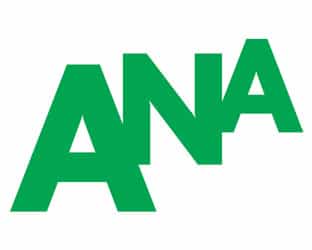Some 69% of advertisers have updated their media agency contracts within the past three years, and one third have made updates in the past year alone in response to concerns about transparency and alleged rebates in the media buying ecosystem, a new ANA report finds.
Bob Liodice, CEO of the Association of National Advertisers (ANA), will co-chair Forecast 2020 with Mary Berner, President/CEO of Cumulus Media. Forecast brings together the best and brightest talent in broadcasting and advertising to forecast the coming year, to discuss the trends and momentums that will affect ratings and revenue. From Washington to Wall Street, automobiles to mobile devices, Forecast focuses on what’s ahead in the broadcast community’s future and how to prepare for its opportunities and challenges.
Seating at the event is limited. Register now at the early bird price. Click here.
Conversely, 31% of the respondents have either not updated their media agency contracts (17%), have not updated it in the past three years (10%), or don’t know whether they have updated it (4%).
The findings suggest that the 2016 ANA/K2 Intelligence report, “An Independent Study of Media Transparency in the U.S. Advertising Industry” has had a significant and increasing influence on media agency contracting and cost governance. But at the same time the report shows there is still room for improvement.
The survey was fielded online in April 2019 in partnership with JLB + Partners, a leading consultancy focused on agency sourcing, search, and selection; agency contracts and compensation; and client/agency relationship management. There were 86 respondents.
“We fielded the survey to examine current media agency compensation practices and related issues of media service costs and transparency,” said ANA CEO Bob Liodice. “The results clearly indicate that media transparency remains a key industry concern and that our members are actively seeking solutions to address it.”
The report, “Media Agency Compensation Practices,” revealed that 60% of respondents said that rebates, discounts, and their variations are not considered part of a media agency’s compensation and that they receive their fair share return of any rebates — a clear indication of the ANA/K2 report’s impact.
“Marketers are clearly starting to look more broadly at the compensation of their media agencies – not just the fee or commission revenue, but the total of all agency costs and revenues, whether programmatic and other media technology charges or revenues earned through rebates and discounts,” said JLB + Partners President/CEO David Beals.
COMPENSATION PRACTICES
The report showed that media agency compensation practices differ from other agency compensation practices in only one notable regard – that media commissions (as opposed to hourly fees) are more likely to be employed for media buying services, and particularly for programmatic media services.
For example, 24% of the respondents use commissions for digital media buying services, while 40% use them for programmatic media services. Those figures compare to only 12% who reported using commissions for agency services in general in the 2017 triennial Trends in Agency Compensation survey.
Consistent with the compensation practices for other agency services, the report showed that over 70 percent of the respondents use a fee method of compensation for “traditional,” offline media planning and buying services, and nearly 60% use fees for digital media services.
ADDITIONAL FINDINGS
- Nearly half of the respondents include performance incentives as part of their media agency compensation, and marketers with larger budgets are more likely to employ them.
- Over 80% of members use an annual performance evaluation as a key criterion for media agency performance. Sixty-seven percent use media savings as a key criterion, with 58% using a business performance metric (e.g., sales, market share, profitability).
- The use of programmatic media is now nearly universal, with 91% of respondents reporting they employ it. Although 84% of the respondents use their media agency for some or all of their programmatic buying, 35 percent use another third party or handle it in-house (either exclusively or in addition to their media agency).
- Over 40% of the respondents indicated they want their media agency to act as an agent in a neutral and objective manner on their behalf and are philosophically opposed to their agency buying and re-selling media to them. Another 27% of the respondents reported that they were generally opposed to the practice but would consider agency-purchased inventory on a case-by-case basis.





